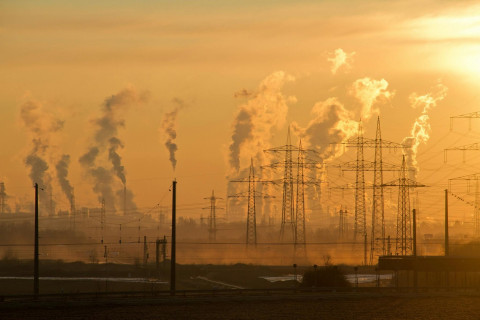Exceptional Response to TNI’s First Call for Research Proposals on Green Industrial Policy in the Global South
Topics
The Global Green Industrial Policy Lab’s inaugural call for research proposals has generated unprecedented interest from researchers across the Global South, resulting in 48 high-quality submissions that far exceeded initial expectations. The diversity and depth of these proposals demonstrate the urgent need for region-specific analysis of green industrial policy challenges and opportunities.

Photo by Pixabay from Pexels: https://www.pexels.com/photo/electric-towers-during-golden-hour-221012/
Critical Perspectives on Green Industrial Policy
The submissions demonstrate sophisticated analytical approaches that move beyond conventional economic frameworks. Researchers are interrogating the political economy of green transitions, questioning who benefits from green industrial policies and examining potential new forms of dependency. Research proposals from Tunisia, Egypt, and several Latin American countries explore whether current green industrial strategies risk reproducing colonial patterns of resource extraction under new environmental narratives.
Democratic participation and governance are another priority focus for Global South researchers. Several proposals explore community resistance to large-scale projects, participatory policy design methods, and the role of civil society in shaping industrial development. This aligns with the Lab’s commitment to moving beyond technocratic approaches towards more inclusive policy frameworks.
Methodological Innovation
The proposals showcase methodological diversity, ranging from comparative policy analysis across multiple countries to action-research approaches engaging directly with local communities. Several submissions propose novel frameworks for measuring "room for manoeuvre" in industrial policy design, while others employ feminist analytical lenses to examine structural inequalities in industrial development.
Regional Insights and Comparative Potential
Sub-Saharan African proposals emphasise institutional capacity challenges while exploring innovative models, such as community-led industrialisation in Sudan and vaccine manufacturing strategies across the continent. Key themes include comparative analysis of labour regimes in South Africa’s renewable energy sector and critical assessments of just energy transition policies, particularly South Africa’s complex relationship with state-owned utility Eskom and grid expansion programmes. Several proposals also investigate the political economy of structural transformation through the adoption of renewable energy across multiple Sub-Saharan countries. Latin American submissions focus heavily on energy transition dynamics, examining topics from Brazil’s biofuel policies to hydropower governance in Honduras. Asian proposals offer crucial insights into the intersection of environmental governance and innovation in the manufacturing sector.
The applicants’ diversity demonstrates the Lab’s commitment to bridging academic and activist spheres. Submissions include early-career researchers introducing innovative ideas alongside seasoned professors with robust backgrounds from world-class universities. Notably, several proposals come from social and environmental activists working in civil society organisations, bringing grassroots perspectives often absent from academic debates. This range of voices—from recent graduates embarking on their first major research projects to experienced academics and field practitioners—will produce insights that marry theoretical rigour with practical knowledge of how industrial policy might affect local communities.
Implications for the Lab’s Mission
This response validates the Lab’s core premise that green industrial policy research must be grounded in the realities of the Global South, rather than being adapted from Northern models. The proposals reveal common challenges, including limited fiscal space, weak institutional capacity, and pressures from global value chains, while also highlighting diverse national strategies and policy innovations.
The geographic distribution also reveals research gaps. Despite the call’s global scope, submissions from certain regions remain limited, suggesting the need for targeted outreach and capacity building in subsequent calls.
Looking Forward
Out of 48 submissions, 46 proposals will proceed to evaluation, divided as follows: Latin America (18), Sub-Saharan Africa (14), Asia (9), and North Africa (5). Two proposals from European researchers, while providing valuable insights, will not be considered as the call specifically targeted researchers based in Africa, Asia, Latin America, and the Caribbean. This geographic focus aligns with the Lab’s goal of amplifying voices and perspectives from the Global South.
The 18 selected researchers will participate in a spring school in South Africa in March 2026, fostering opportunities for South-South learning and collaborative agenda-setting. The quality and diversity of submissions indicate this cohort will generate significant insights for policymakers, researchers, and civil society organisations working on industrial transformation across the Global South.
The strong response to this inaugural call establishes the Global Green Industrial Policy Lab as a vital platform for advancing contextually relevant research on one of the most pressing development challenges of our era. The resulting research outputs, to be published in 2026, will contribute to more nuanced, locally-grounded approaches to green industrial policy that prioritise social justice alongside environmental sustainability.
The selected research papers will be published by TNI in digital and print formats throughout 2026, with preliminary findings presented at the spring school in South Africa.
